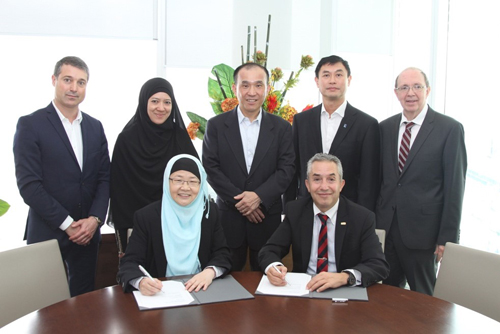A*STAR’s NanoBio Lab will be partnering Canada’s Hydro-Québec to finance US$20 million for a joint laboratory for battery research.
The new facility will be housed in Singapore’s biomedical research hub, Biopolis. It will focus on making batteries more efficient and safer through the use of innovative nanomaterials.
Recent cases of exploding smartphones and hoverboards have placed lithium-ion batteries in the spotlight, sparking consumer fear and safety concerns.
The joint laboratory aims to improve solid-state batteries which do not use flammable liquid electrolytes. They are considered to be a safer alternative to lithium-ion batteries. In particular, the lab will focus on developing new nanomaterials and nanotechnologies for electric vehicles and energy storage that are safe, efficient and cost-effective.
“The prevalence of electronic devices in our daily life and the quest for clean, renewable energy have led to increasing demand for more innovative and safer energy storage solutions,” said Professor Jackie Y. Ying, who heads NanoBio Lab.
“Since 2011, we have worked with Hydro-Québec to improve the performance and safety of existing batteries. Through in-depth technology exchange, we have created many interesting new materials, and we are delighted to significantly expand our collaboration in order to accelerate our technology R&D efforts towards commercialization,” he added.
“[Hydro-Québec is] delighted to establish a joint research facility in this area with her new Lab. Together, we hope to contribute to more breakthroughs and advancements in safe battery technology, and look forward to manufacturing the new generation of solid-state batteries in Singapore and Québec,” said Dr. Karim Zaghib, General Director of Hydro-Québec’s Center of Excellence in Transportation Electrification and Energy Storage (CETEES).
The joint laboratory will employ over 30 researchers.
A*STAR Chairman Lim Chuan Poh said, “I congratulate NanoBio Lab and Hydro-Québec on the setting up of this joint laboratory on battery materials technology. This is an emerging technology which could pave the way for cleaner and more renewable energy sources to power the next-generation of devices and vehicles. We look forward to developing and commercializing innovative energy storage solutions through this collaboration.”



